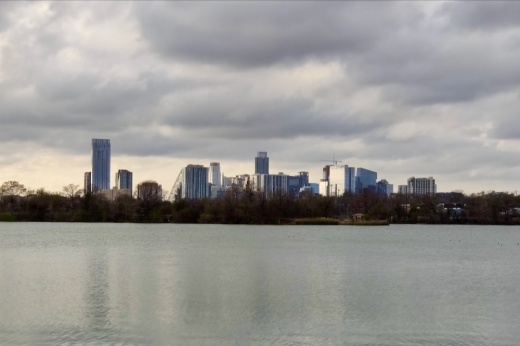Multiple items on council's Sept. 1 agenda concern how that process will look going forward, such as one proposal left over from budget planning that could freeze Austin's dedication fees at least for the next year. Those figures were proposed to double in fiscal year 2022-23, one year after they had also doubled.
Despite those notable increases contributing to the city's relatively high permitting and development costs, the Parks and Recreation Department said the fee hikes are needed to simply maintain parkland goals as Austin grows—and grows more expensive. Nearly half of the city dollars spent on new parks or parks improvements come from parkland dedication, with the remainder coming from dwindling bond funds.
"[The Parks and Recreation Department] would be attempting to keep pace with growth using fewer resources and becoming more reliant on bond funding," said Randy Scott, a department parks planner, of the proposed fee freeze in August. "Fewer park acres per 1,000 people will result in a declining quality of life, perpetuate historic disparities in park investments, and represent lost opportunities to close gaps in greenbelts and provide connectivity. [The department] would be required to supplement the increased demand by taxing existing residents with additional bonds in order to pay for growth.”
Still, some officials and members of the development community remain concerned that the fee jump may discourage new construction, and District 1 Council Member Natasha Harper-Madison has pushed to keep the fees flat for the next year. The Austin Board of Realtors, one stakeholder working with the city on the process, supports Harper-Madison's plan given the link between fees and broader housing trends.
"Limited housing inventory, soaring construction costs, consistent supply chain issues and increasing development fees have become major drivers of the housing affordability crisis in Austin. We are seeing a growing number of households forced to make difficult decisions due, in large part, to the escalating housing costs," said Taylor Smith, ABoR's deputy director of government affairs, in a statement. "Providing relief from residential development fees will not only help Austin residents moving into these new developments but will also support the overall housing market."
For the most dense developments, excluding hotels, fee increases from $3,438.66 to $7,026.39 per housing unit were initially proposed for FY 2022-23. The fees for low-density developments had been suggested at $11,572.88 per unit, up from the current $5,663.37. Harper-Madison's budget amendment would keep the current figures in place, and it also called for a change that would have the city collect those fees once projects reach the site planning stage—later in the development process than at present. Scott said Aug. 30 that pushing the city's fee collection timeline back would potentially cost the city years of new park development along with millions in lost fees. And Parks and Recreation Department Director Kimberly McNeely said her team has struggled to evaluate the "unintended consequences" of the move.
Council members have so far shared a range of opinions on the issue. And Mayor Steve Adler said he also wants to ensure any of council's adjustments are publicly viewed as "good faith" efforts due to the possibility of state legislative action on the policy next year. While the Texas Supreme Court upheld parkland dedication as a legal option for cities seeking to maintain green space decades ago, lawmakers could still target the practice.
"I hate we're in a position where we're talking about fees and how they impact building in the city and the cost of rental units and multifamily in the city. But we are. And we're trying to find the right balance," Adler said. "We're also trying to find the right balance that preserves the parkland dedication fee in the legislative session next year."
Commercial dedication
Austin's parkland dedication fees only apply to housing developments and hotels, but council started a process earlier this year to wrap commercial projects into the fee schedule as well. After months of stakeholder engagement and with input from the Planning Commission, officials will also be considering new fees for retail, office and industrial spaces.
Commercial parkland fees would be based around criteria such as a development's projected employee count and the number of its workers commuting into Austin. Fees are proposed at a rate of $4,133.17 multiplied by a project's "functional population" calculated from those workforce statistics.
The change was partially inspired by the number of commercial projects rising up in areas found to be parkland-deficient, and to balance the demand placed on Austin's green space by new employees at those businesses. Council's resolution on commercial fees noted that residential projects and hotels currently bear a "disproportionate burden" in the dedication process.
The commercial dedication plan was initially met with opposition from several groups, including the Real Estate Council of Austin, Downtown Austin Alliance and Austin Apartment Association. In a spring letter to council, they expressed concern about the city's process, the legality of a commercial addition and how it might affect Austin's cost of living.
"Austin is in an affordability crisis. This item would not reduce the amount of money that renters and new homeowners pay for parks to be built in this city—this new fee is in addition to a massive fee increase on residential properties that was implemented last fall," the groups' leaders wrote.
If an expansion of the new fee structure is approved, those groups and ABoR also highlighted the question of whether the new money could be used to roll back some of the charges already placed on housing projects.
"[W]e propose and encourage council to use the new revenue generated from the policy change to offset and lower the parkland dedication fee charged to residential developments," Smith said in August. "Austin’s housing affordability crisis has impacted all Austin residents, which is why it is imperative for council to find ways to decrease the cost of residential construction."





